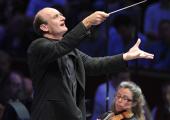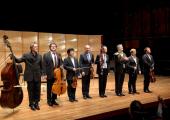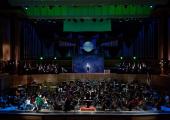Widmann, LPO, Jurowski, RFH

Futility and magic in Julian Anderson’s new work, and not enough joy from Ravel
Through symphony, opera and orchestral fireworks, Julian Anderson’s music can usually be guaranteed to bring his audiences plenty of meaty listening. But the British composer’s golden aura faded somewhat during the London Philharmonic’s world premiere last night of In lieblicher Bläue, a quasi-concerto (“poem” is Anderson’s preferred term) for violin and orchestra. Some of its troubles might lie in the composer's source of inspiration, a crazy-quilt German Romantic text, hovering between poetry and prose, written in the early part of Friedrich Hölderlin’s long mental decline.








